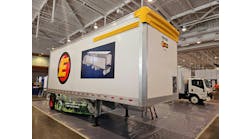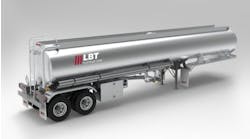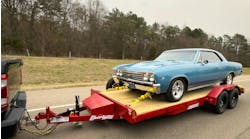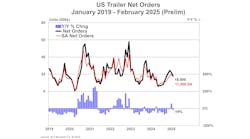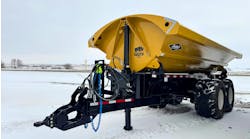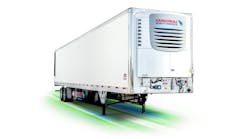A stubbornly weak freight market and looming emissions mandates combined to drive trailer order activity significantly lower in May, falling to 6,100 units. That 7,650 units below April’s intake, and 46% lower than the same period last year, according to this month’s issue of ACT Research’s State of the Industry: U.S. Trailers report.
May’s tally brings the year-to-date net order activity to 68,200 units, 25% lower than the first five months of 2023, with its faster paced order environment, pent-up demand, and moderately congested supply chain, ACT Research noted.
Seasonally adjusted, May’s orders were nearly 7,200 units compared to a 17,300 SA rate in April.
“On that basis, orders decreased 59% m/m. Dry van orders contracted 85% y/y, while reefers, albeit at low volumes, were still an improvement from last May’s negative net order tally. Flats were 37% lower compared to May 2023,” said ACT Research Director–CV Market Research & Publications Jennifer McNealy. “Total cancellations again oscillated to the higher side of the pendulum’s arc in May. The cancellation rate rose to 3.2% of the backlog, from April’s 1.5% rate. Eight of ten markets remained at or above the 1% mark, with OEMs indicating cancellations from multiple fleets and dealers.”
Noting the “capex constrained environment,” and with an “expensive” EPA mandate landing in 2027, fleet willingness to spend on trailers is under growing pressure, she added.
“Coupling these factors and overstocked dealer inventories that are proving harder to move and the absence of a need for carriers to boost trailer:tractor ratios in the short-term, as capacity remains plentiful and spot market volumes and rates remain under pressure from private fleet capacity expansions, and it adds up to a challenging part of the cycle for the US trailer industry,” McNealy concluded.
ACT Research’s State of the Industry: U.S. Trailers report provides a monthly review of the current US trailer market statistics, as well as trailer OEM build plans and market indicators divided by all major trailer types, including backlogs, build, inventory, new orders, cancellations, net orders, and factory shipments.
